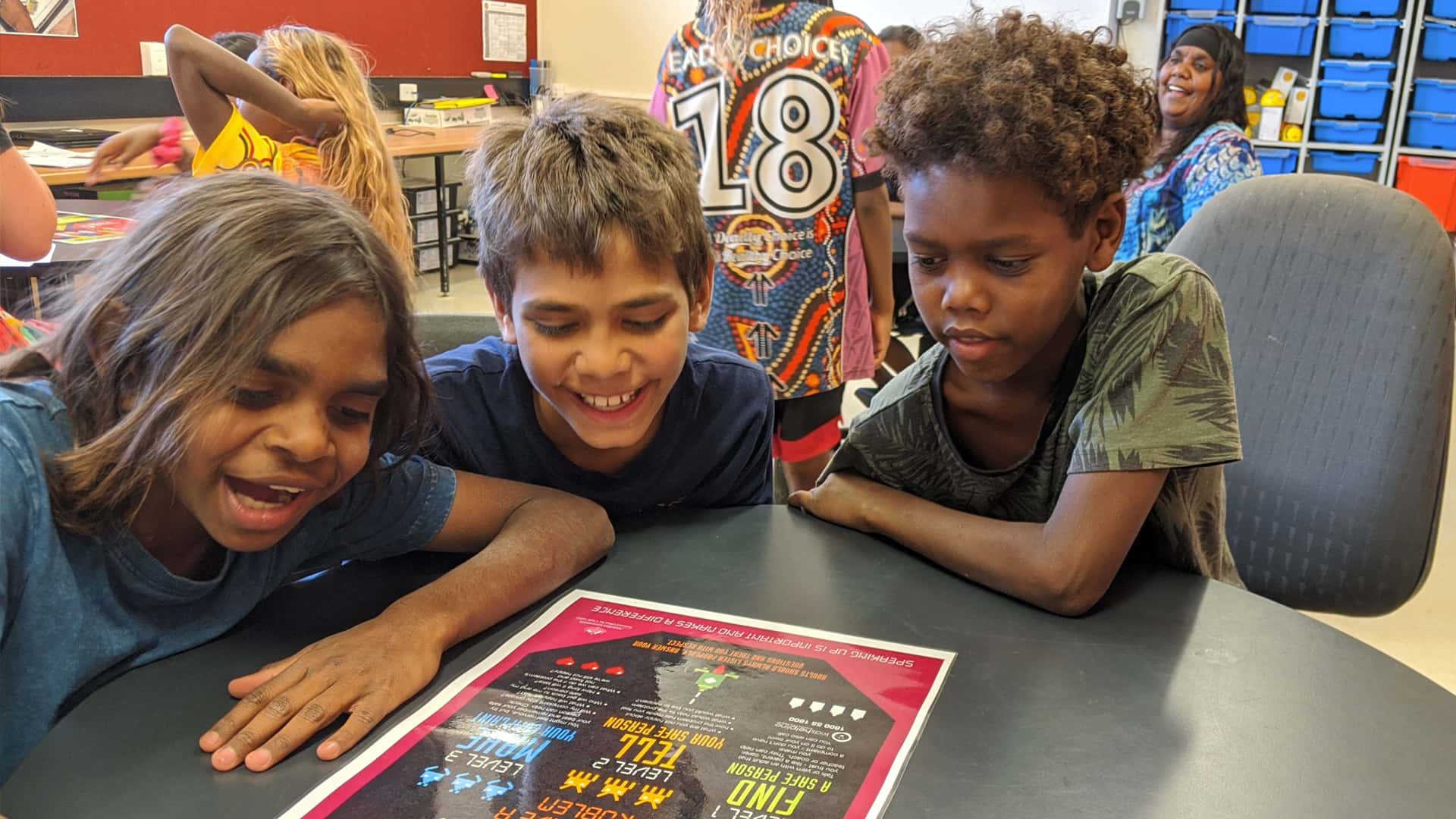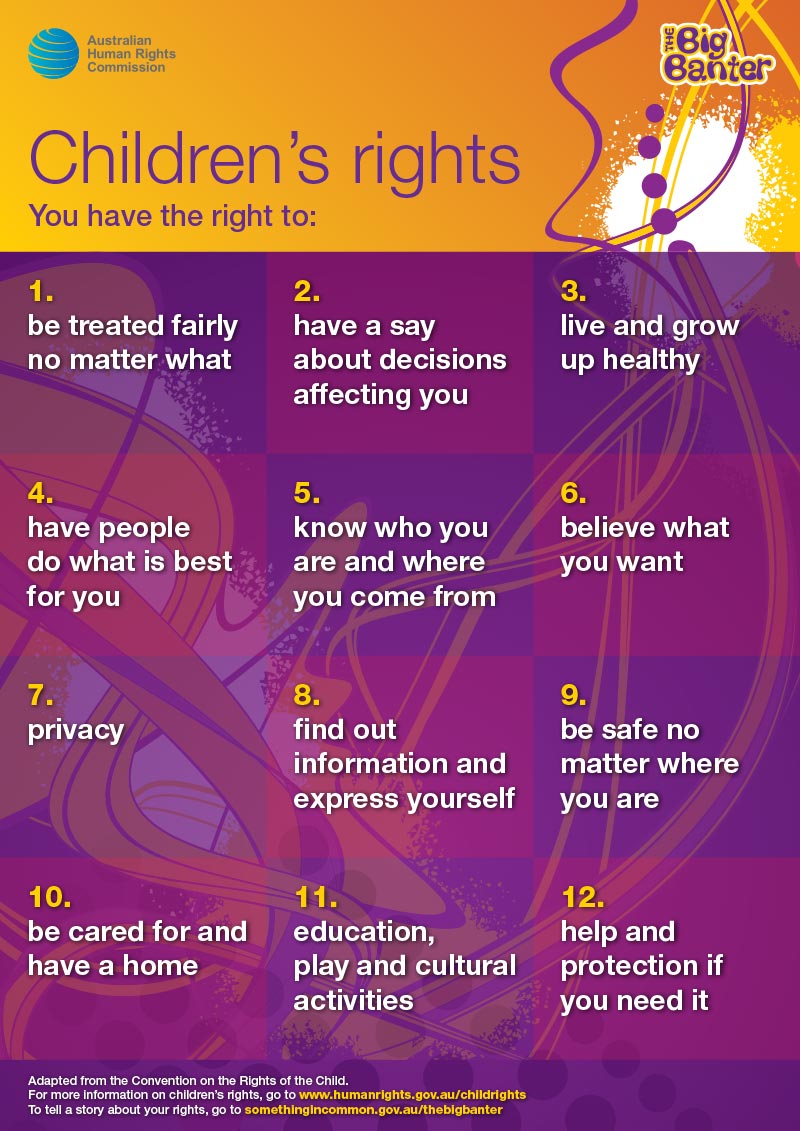Children's Rights
Just like adults, children have rights across the full spectrum of civil, cultural, economic, political and social rights.
Children also have special rights because of their vulnerability, such as the right to:
- protection from exploitation and abuse,
- be cared for and have a home,
- have a say in decisions which affect them,
- speak their own language and follow their families way of life
- have quality healthcare, clean water and good food.
The main international human rights treaty on children’s rights is the Convention on the Rights of the Child (CRC), which Australia ratified in December 1990. The CRC incorporates all the general rights set out in other treaties that apply to everyone, as well as the special rights that apply to children.

The four Guiding Principles of the CRC are
Protecting children's rights
Most children and young people in Australia grow up in a safe, healthy and positive environment. However, vulnerable groups of children and young people continue to lack adequate human rights protections.
Children experiencing homelessness or mental health issues, children with disability and children held in detention centres are some of the groups of children particularly vulnerable.
The OCC meets constantly with children and young people to hear their views on how they are treated by adults, what worries them and what is working well for them. This information helps the OCC to decide what work we should prioritise and to inform others, like the Northern Territory Government about what they should do to protect children in the Territory and make sure they are getting the things they need to grow up healthy.

Children's Rights in Australia
Australia has agreed to uphold the rights set out in the:
- Optional Protocol to the Convention on the Rights of the Child on the Involvement of Children in Armed Conflict (OPAC)
- Optional Protocol on the Sale of Children, Child Prostitution and Child Pornography (OPSC). These human rights treaties add or complement the CRC.
- Optional Protocol to the Convention Against Torture and Other Cruel, Inhuman or Degrading Treatment or Punishment (OPCAT)
OPCAT requires Australia to monitor the rights of people deprived of liberty, including children in detention.
Every five years, the Australian Government reports to the United Nations Committee on the Rights of the Child on how children are faring in Australia and what it is doing to protect children’s rights. The UN Committee monitors how countries are meeting their obligations under the CRC and its Optional Protocols.
